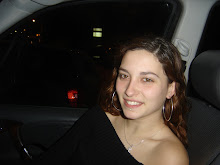skip to main |
skip to sidebar
Example:
- I wish I lived in a beach house.
- I wish I were a child again.
- I missed the bus, I wish I had caught it.
- I hadn't much free time when I was working last month, I wish I had had more free time.
- I wish you would tell me the whole story.
- I wish you would leave me alone.
Examples:
- If we had been more careful, we wouldn't have had the accident.
- If I hadn´t eaten too much, I wouldn´t have had a stomachache.
- Maria would have had a great time if she had gone with us.
- If it had been sunny, we could have gone to the beach.
Examples:
- If I won the lottery, I would be rich.
- If I lived in a palace, I would give parties all the time.
- You could translate this letter for me if you spoke German.
Examples:
- If we don't hurry up, we will be late.
- If it rains, we will stay at home.
- I will come to your home if you call me tonight.
Examples:
- You would really like this sushi.
- Would you mind passing the sandwiches along,please?
Examples:
- Can I help you?
- Shall I carry the bag?
- Would you like a cup of tea?
Examples:
- I think we could have another World War.
- We 'd better phone tomorrow, they might be having a nap.
- China may become a major economic power.
- He must have money, he just been paid.
Examples:
- May I talk with to the boss, we have to close a business deal.
- You can go to the concert if you clean your room.
- Could I borrow your dictionary?
Examples:
- I can speak catalan, my parents taught me when I was a child.
- I could run very fast when I was fifteen.
- She is able to answer all the questions, she is very intelligent.
Examples:
- You should go to the doctor, you look ill.
- She ought to be careful, some day she can get hurt.
- You had better eat before we meet, we are going to work until the afternoon.
Examples:
- You don't have to wake up early on saturdays because you don't have to go to work.
- He needn't pay it now if he doesn't want because he can pay it in two parts.
- I don't need to study French anymore, I've allready passed the exam.
Examples:
- Everybody knows that you musn't smoke in the hospital.
- A mother tells to her child: "You musn't play with matches".
Examples:
- There's a poster on the wall of the library that says: "You must be quiet".
- I have to attend a meeting.The boss has asked me to attend it.
Examples:
- Yesterday I ate one apple.Today I am going to eat two apples.
- Last saturday a hundreds of men had died in a fatal plane accident.
Examples:
- Can you give me some money?
- I want a glass of watter.
- Do you like to listen to music?
Examples:
- There are two tables and four chairs.
- I want an orange.
- I have a book in my bag.
Examples:
- Yesterday I saw an exciting film in the cinema.
- We are really tired because we have been working hard.
- Are you frightened of rats?
Examples:
- Sara drives slowly.
- They answered the question perfectly.
- He came back home suddenly.
- She will possibly arrive late.
Examples:
- By next week I will have received my new computer.
- The film isn't very long. I will have seen it by dinner time.
Examples:
- At this time on wednesday I will be travelling.
- I will be having dinner when she arrives tonight.
Examples:
- Shall I open the door?
- Shall I carry your case?
Examples:
- Are you going to meet Sara tonight?
- I'm going to visit some cousins during my holiday.
- I'm going to be a singer when I grow up.
Examples:
- I'll help you with your homework.
- I'll send you a postcard during my holiday.
- I'll call you when I arrive.
Examples:
- I'm going to the party tonight.
- He's visiting his grandparents next weekend.
- Are you meeting your new teacher tomorrow?
Examples:
- The party starts at 9 o'clock.
- Tha train leaves at 11 p.m.
Examples:
- I'd been having breakfast when she finally arrived.
- I'd been waiting for two days before she told me the answer.
Examples:
- I didn't have any money because I'd lost my wallet.
- I'd been to Paris before you went to Marsella.
Examples:
- It was a very great holiday.
- I didn't leave the cinema until the end of the film.
Examples:
- I've been doing my homework for 5 hours.
- Have you been waiting for three hours?
Examples:
- Have you ever been in love?
- I've already painted my bedroom.
Examples:
- I'm writing in my blog.
- You are doing your homework very fast.
Examples:
- My t-shirt is black.
- My favourite colour is purple.

